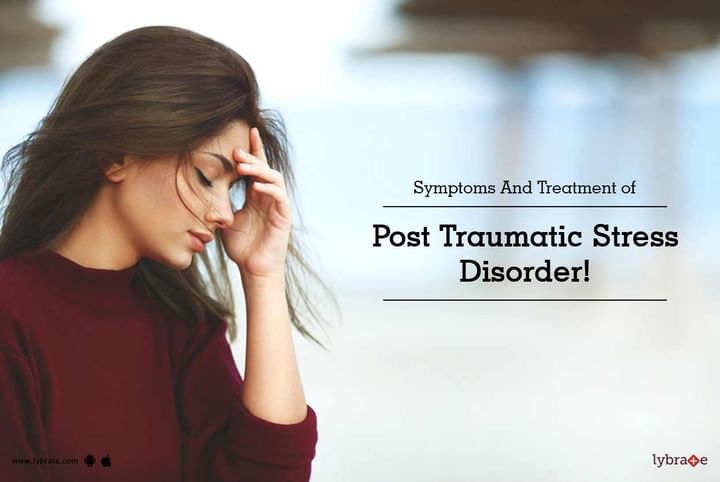Symptoms And Treatment of Post Traumatic Stress Disorder!
A particularly stressful situation or event that has created terror or been overly dramatic or dangerous can lead to stress and anxiety long after the individual has physically come out of the situation. This kind of a traumatic condition is usually what characterises Post Traumatic Stress Disorder (PTSD).
In simple words, PTSD is a neurological disorder which affects individuals after experiencing severe traumatic situations.
Symptoms of PTSD:
- Mood symptoms: Mood swings are the most common outcome of these symptoms. The patient may experience a complete lack of enthusiasm and drive to indulge in activities like hobbies and socialising. Also, the patient may end up harbouring feelings of negativity towards family, friends and strangers, besides going through phases of guilt and self blame for the occurrence of the traumatic event.
- Re-experiencing symptoms: These symptoms include flashbacks and life like re-imagination in the form of dreams and nightmares. In many cases, the patient may remember and re-experience the entire scene or series of events that have led to the trauma in the first place. This can be triggered by a memory or association with words, events and other such things that have to do with the memory of the traumatic episode.
- Arousal symptoms: Arousal or reactivity symptoms may trigger the same reactions that the person showed during the traumatic experience. These may include being on edge constantly in anticipation of a reoccurrence, or even getting startled by the slightest thing since the mind is already occupied with thoughts of the event, constantly. Anger and emotional outbursts may also be caused due to these symptoms.
- Avoidance or rumination: Those suffering from PTSD avoid being reminded of the trauma, such as people, situations or circumstances associated with the event. They try to suppress memories associated with the event.- Many others ruminate excessively and prevent themselves from coming to terms with it.
Treatment for PTSD:
Mindfulness meditation (not a treatment option) helps in recognizing cognitive dissonances and affected thought patterns and aids in recognizing and overcoming their influence. Other therapies, including Cognitive behavioral therapy (TF-CBT) and eye movement desensitization and reprocessing (EMDR) are also done depending on the patient's condition.
How do medications help regulate these responses?
The medications prescribed for treating PTSD symptoms act upon neurotransmitters related to the fear and anxiety circuitry of the brain including serotonin, norepinephrine, gamma-aminobutyric acid (GABA), excitatory amino acids. There is great interest in developing agents with novel and more specific mechanisms of action than are currently available to target the PTSD symptoms described earlier while also minimizing potential side effects.
Studies show that a number of medications are helpful in minimizing PTSD symptoms. Most of the time, medications do not entirely eliminate symptoms but provide symptom reduction and could be more effective when used in conjunction with an ongoing program of trauma specific psychotherapy for patients.
Medications
Several types of medications can help improve symptoms of PTSD:
- Antidepressants. These medications can help symptoms of depression and anxiety. They can also help improve sleep problems and concentration. The selective serotonin reuptake inhibitor (SSRI) medications sertraline (Zoloft) and paroxetine (Paxil) are approved by the Food and Drug Administration (FDA) for PTSD treatment.
- Anti-anxiety medications. These drugs can relieve severe anxiety and related problems. Some anti-anxiety medications have the potential for abuse, so they are generally used only for a short time.
- Prazosin. If symptoms include insomnia with recurrent nightmares, a drug called prazosin (Minipress) may help. Although not specifically FDA approved for PTSD treatment, prazosin may reduce or suppress nightmares in many people with PTSD.
You and your doctor can work together to figure out the best medication, with the fewest side effects, for your symptoms and situation. You may see an improvement in your mood and other symptoms within a few weeks. If you wish to discuss about any specific problem, you can consult a psychiatrist.


+1.svg)
